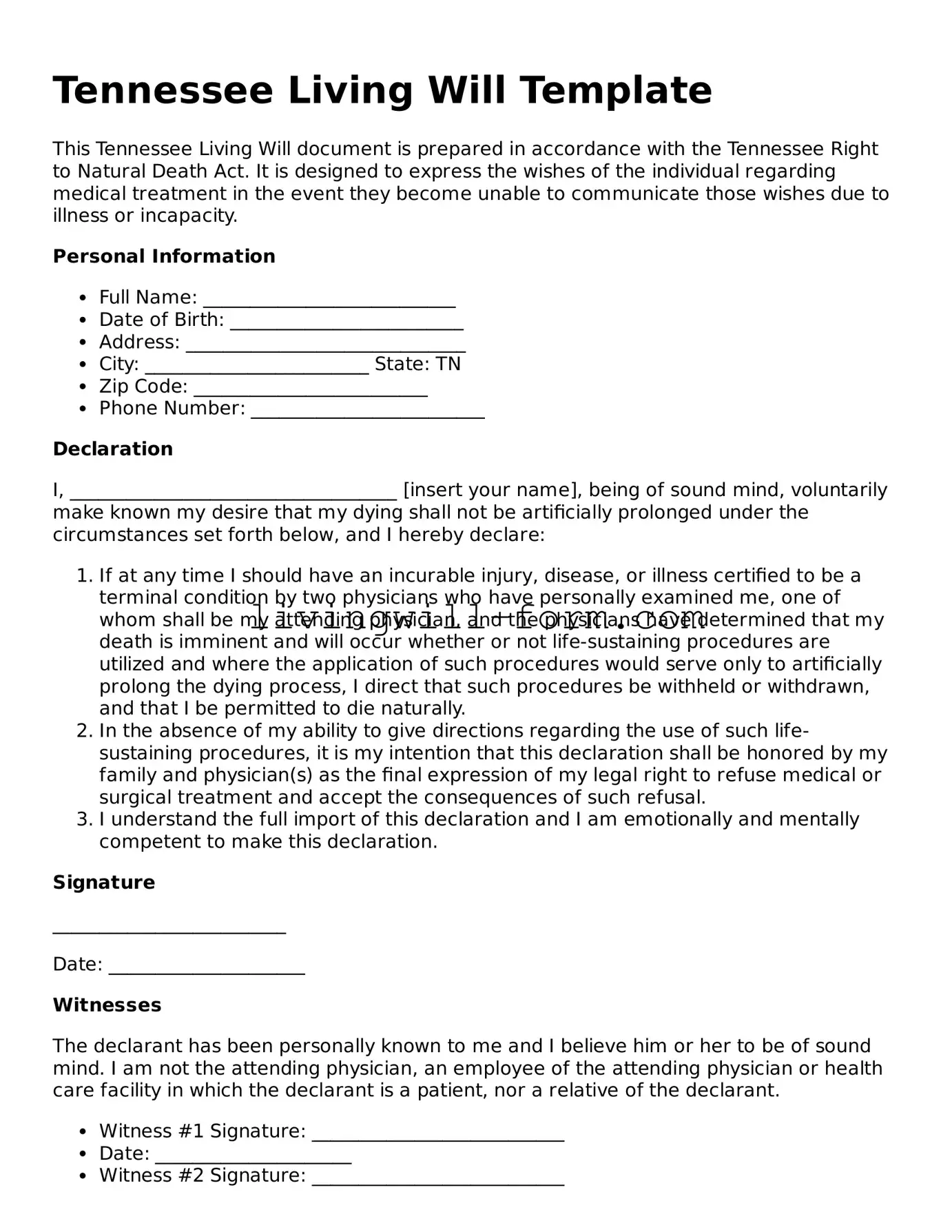What is a Tennessee Living Will?
A Tennessee Living Will is a legal document that allows an individual to outline their preferences regarding medical treatment if they become unable to communicate or make decisions due to a severe health condition. This document is crucial for ensuring that one's healthcare wishes are known and respected by family members and healthcare providers.
Who can create a Living Will in Tennessee?
Any competent adult who is at least 18 years old or an emancipated minor can create a Living Will in Tennessee. The individual creating the Living Will must be of sound mind at the time of its creation, capable of making informed decisions about their healthcare.
How does one go about creating a Tennessee Living Will?
To create a Living Will in Tennessee, one must complete a Living Will form that complies with Tennessee law. This involves clearly stating their healthcare treatment preferences, particularly regarding life-prolonging treatments, and signing the document in the presence of witnesses or a notary public. It is advised to consult with a healthcare provider or an attorney to ensure the document accurately reflects the individual's wishes.
Is a lawyer required to create a Living Will in Tennessee?
No, a lawyer is not required to create a Living Will in Tennessee. However, consulting with an attorney can be beneficial to ensure that the document is correctly prepared, reflects one's healthcare wishes accurately, and meets all legal requirements.
What should be included in a Tennessee Living Will?
A Tennessee Living Will should include specific instructions on the types of medical treatment the individual desires or does not desire if they are in a terminal condition or in a state of permanent unconsciousness. This may involve decisions about life-sustaining treatments, resuscitation, mechanical ventilation, tube feeding, and palliative care. It's also helpful to include a healthcare power of attorney to designate someone to make healthcare decisions on the individual's behalf.
Can a Tennessee Living Will be revoked?
Yes, a Tennessee Living Will can be revoked at any time by the creator, irrespective of their physical or mental condition. Revocation can be done in several ways: through a written statement, by physically destroying the document, by expressing the intent to revoke it in front of a witness, or by creating a new Living Will that contradicts the previous one.
When does a Tennessee Living Will become effective?
A Tennessee Living Will becomes effective when it is delivered to the attending physician, and the individual is diagnosed as being in a terminal condition or in a state of permanent unconsciousness and unable to communicate or make decisions. The document serves as a guide to healthcare providers in determining the course of treatment according to the individual's wishes.

